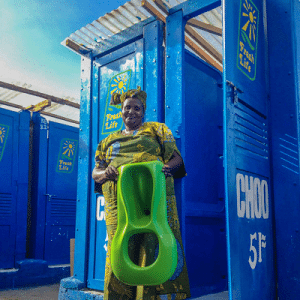
Agriculture
August 17, 2024
Sanergy Fresh Life Toilet and Sanergy Fresh Life Waste Management Service
Read SolutionImplemented by
Sanergy
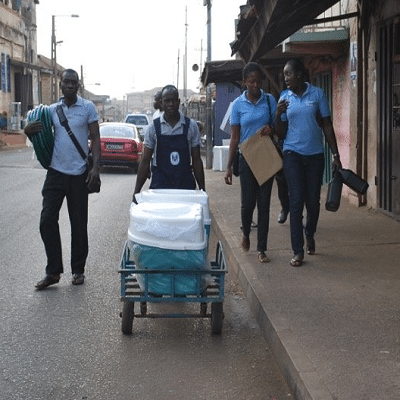
Updated on January 19, 2024
·Created on August 5, 2017
Clean Team is a Ghanaian social enterprise that that provides household toilets at a low monthly fee.
The Clean Team Toilet Waste Management Service is a service where the social enterprise Clean Team provides toilets to households for a monthly fee. Clean Team delivers, installs, maintains, and empties the toilet. Instead of buying a personal toilet and taking care of it, the customer pays regularly for a toilet service. In this way, the big initial investment cost and the unpleasant management of waste is avoided for the household. The service is targeted towards households in low-income settings in Ghana.
The Clean Team service is a comprehensive sanitation system, with a custom-designed stand-alone rental toilet (which is urine-diverting, or UDDT), as well as a waste-removal system that collects 2-3 times per week. Once at their central processing facility, they transport the waste to a treatment site. Clean Team now serves 5,000 people in Kumasi, Ghana, making lives cleaner and healthier. This business evolved from the Uniloo project: a collaborative venture between WSUP (Water and Sanitation for the Urban Poor), Unilever, and design consultants IDEO.
Target SDGs
SDG 6: Clean Water and Sanitation
Market Suggested Retail Price
$13.00
Target Users (Target Impact Group)
Household, Community
Distributors / Implementing Organizations
Clean team
Competitive Landscape
Countries
Ghana
Manufacturing/Building Method
Toilets are manufactured in China and imported.Interview with representative
Intellectural Property Type
Open-source
User Provision Model
The customer pays one month in advance to get Clean Team to install the toilet, after that payment is done weekly with Mobile Money. This fee includes the toilet, emptying of the toilet and maintenance of it.
They collect the waste 2-3 times per week. Once at their central processing facility, they transport the waste to the municipal treatment site. Their plan for scale is to use financially viable methods to convert the waste into energy and organic fertilizer to sell to commercial farms in the region (though this process has not yet begun).
Distributions to Date Status
Clean team has installed over 600 toilets and serves around 4500 people in Kumasi, Ghana.
Toilet type
Container-based service
Evacuation method
Dry
Storage conditions
Container storage
Capacity (L)
Unknown
Time until emptying
Up to two collections weekly
Design Specifications
The following outlines the design of their waste management service:
To receive a toilet, the user must sign up for a collection plan (vs. purchasing the actual toilet). New customers pay a one-time 15 GHS (roughly $4). The collection plan costs $9/month for basic collection and cleaning.Interview with representative
Pick-ups are 2-4 times a week on certain days, depending on family size. The person collecting will pick up the "cartridge" (a removable plastic bucket where the waste drops), puts a lid on it, and then puts it in a hand pushed trolly. A full trolly is transported to a local central location, and then a truck takes the waste to a processing plant. Once at their central processing facility, they transport the waste to a separate municipal treatment site, the Dompoase Metropolitan Waste Treatment Facility, which reduces BOD (biochemical oxygen demand) by 70-80% through a series of waste stabilization ponds (WSPs). Their plan for scale is to use financially viable methods to convert the waste into energy and organic fertiliser to sell to commercial farms in the region. However, Clean Team does not yet process the waste into energy or fertilizer. To date, the municipal waste treatment facility discharges the treated wastewater into the river.
The actual toilets costs approximately $91.
Toilet type: urine-diverting dry toilet (UDDT)
Clean Team has a service team of 40 employees.
Technical Support
Technical support is included in the service package.
Replacement Components
Clean Team will replace malfunctioning components. By paying the monthly fee customers are ensured that they have a functioning sanitation facility.
Lifecycle
Service providers recover any toilets that are defective or at end-of-life.
Manufacturer Specified Performance Parameters
Clean Team's goal is to provide safe, affordable in-home toilets for low-income families. They wanted to create a service so that clients did not have to defecate in the open or in plastic bags, use unhygienic toilets, wait in lines and risk contact with pathogens. The system was created to reduce unsanitary conditions and disease spread.
Vetted Performance Status
The system has been successfully piloted and implemented in the second largest town in Ghana. Performance was evaluated as part of a Civil and Environmental Engineering Master's Thesis at the Massachusetts Institute of Technology, titled Evaluation of Innovative Decentralized Sanitation Technologies in Ghana. The evaluation recommended that for large projects in densely populated areas, the Clean Team Toilet was the best choice if a reuse for waste and safe disposal of biocide can be established.
Safety
Having professionals safely remove and take care of excreta reduces the risk of contamination and disease spread. Safe handling of waste material requires protective clothing, as the biocide chemicals used to clean toilets present serious health and environmental concerns.
Complementary Technical Systems
None
Academic Research and References
Knutson J., 2014, Evaluation of Innovative Decentralized Sanitation Technologies in Ghana, Master’s Thesis, Massachusetts Institute of Technology.
WSUP, 2011, Clean team, a human-centred approach to sanitation: initial trials in Ghana.
Skoll World Forum, 2013, Building a Scalable Business in Ghana: Because Every Family Deserves a Toilet, Forbes.
IDEO, (n.d.), An Enterprise That’s Committed to Putting a Toilet in Every Home.
Maoulidi, M., 2010, A Water and Sanitation Needs Assessment for Kumasi, Ghana, Columbia University.
Mazeau, A., 2013, No toilet at home: implementation, usage and acceptability of shared toilets in urban Ghana, Doctoral Thesis, Loughborough University.
Clean Team Toilets, (n.d.), Available: https://www.cleanteamtoilets.com/
WSUP, (n.d.), Available: https://www.wsup.com/
UNILEVER, (n.d.), Available: https://www.unilever.com/
Goal 6, (n.d.), Available: https://sdgs.un.org/goals/goal6
Compliance with regulations
No standards have been cited by the designer.
Evaluation methods
Unilever and WSUP piloted the project with about 100 families in the city of Kumasi, Ghana, before launching in 2012. The pilot was used to evaluate the usability of the service.
Other Information
Clean team is exploring tiered pricing options for schools, households, businesses, public toilets, and community centers. Their plan for scale is to use financially viable methods to convert the waste into energy and organic fertilizer to sell to commercial farms in the region (though this process has not yet begun).
This video highlights the work of Clean Team
The clean team business evolved from the Uniloo project: a collaborative venture between WSUP (Water and Sanitation for the Urban Poor), Unilever, and design consultants IDEO. Promotional videos can be found here and here.
Additional resources can be found through IDEO.org

Agriculture
August 17, 2024
Implemented by
Sanergy

Agriculture
January 17, 2024
Implemented by
Sanima
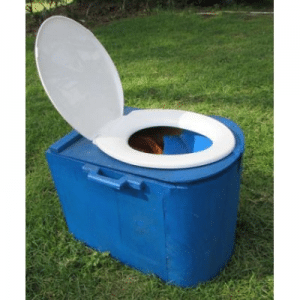
Agriculture
January 22, 2024
Implemented by
Sanivation
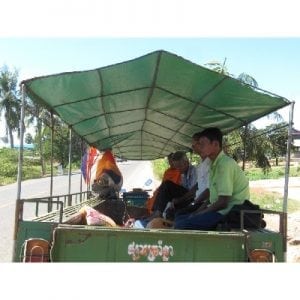
Agriculture
August 4, 2024
Implemented by
Partners for Development Taxi Service

Agriculture
June 25, 2024
Implemented by
MIMU
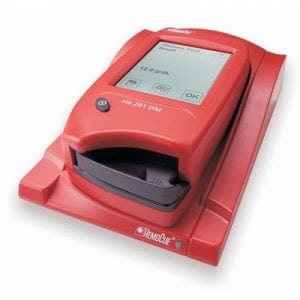
Agriculture
February 15, 2024
Implemented by
HemoCue
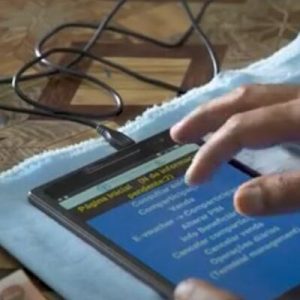
Agriculture
June 29, 2024
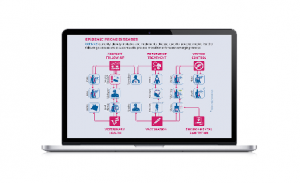
Agriculture
June 26, 2024
Implemented by
Helmholtz Centre for Infection Research (HZI)
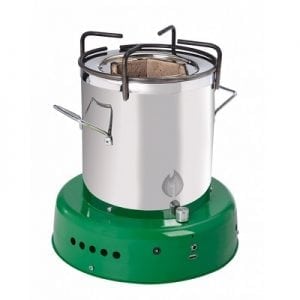
Agriculture
November 30, 2024
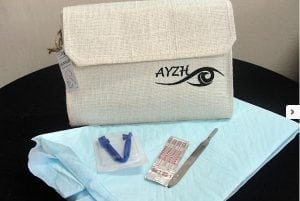
Agriculture
November 17, 2023
Implemented by
AYZH
Have thoughts on how we can improve?
Give Us Feedback